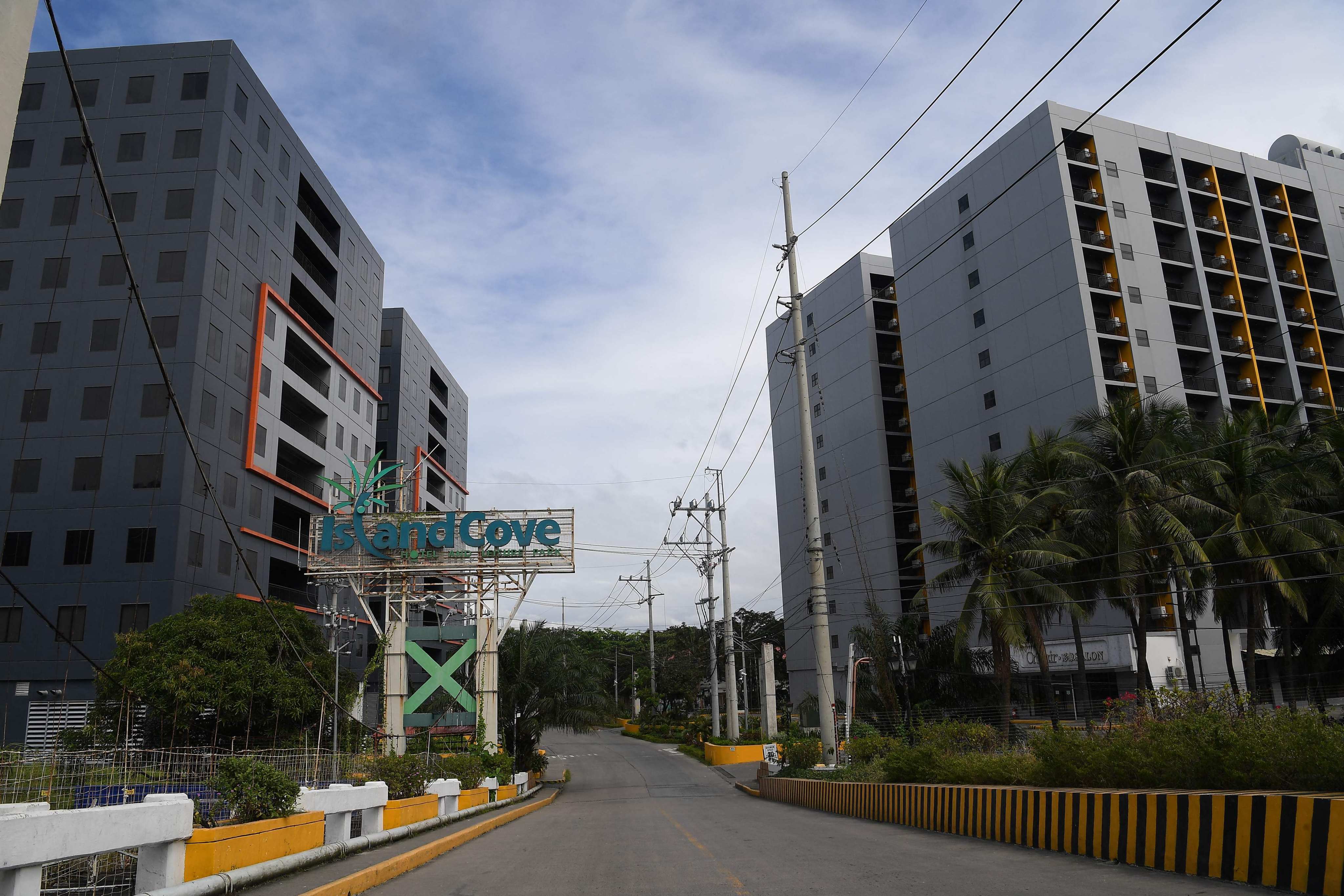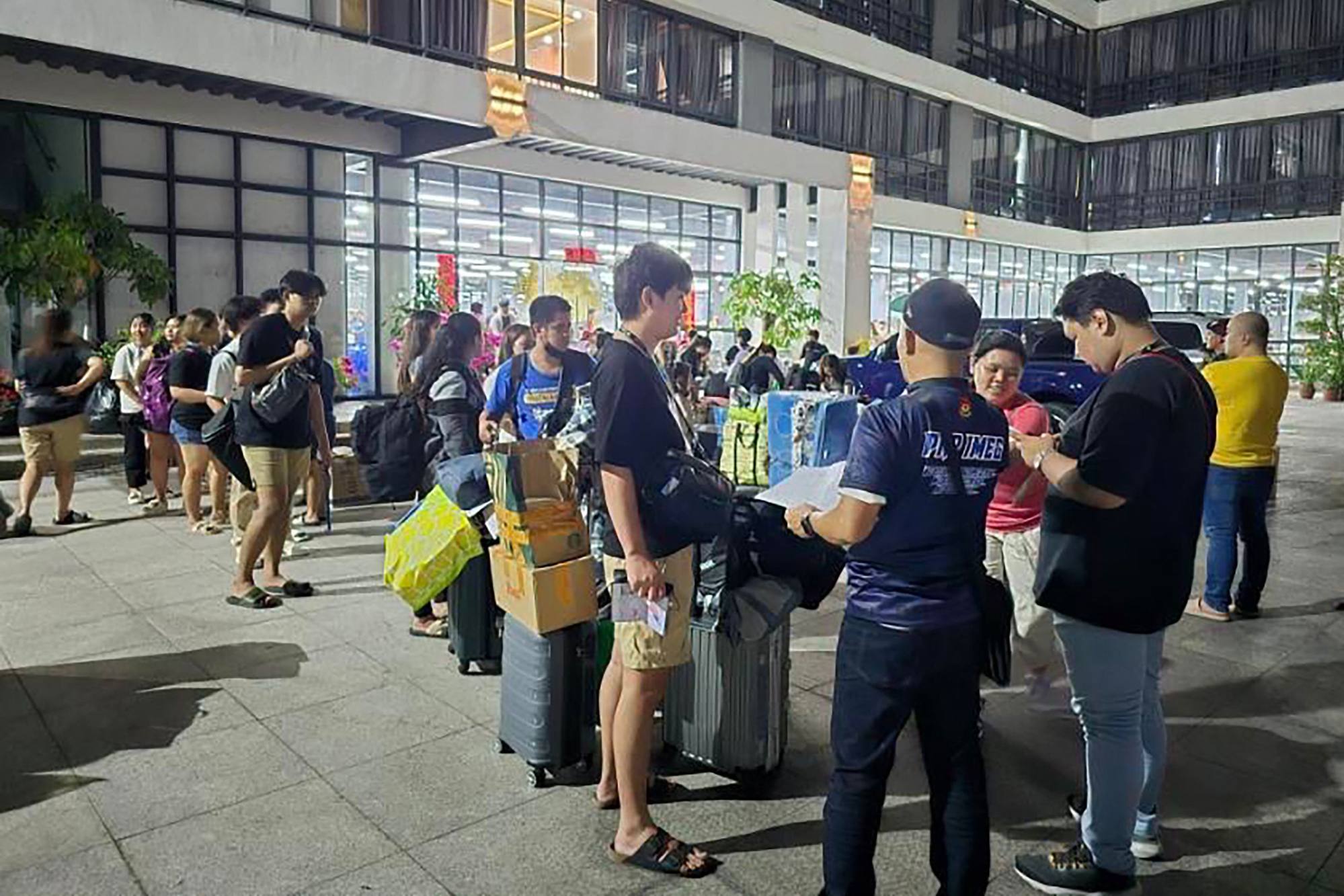Up to 10,000 Pogo-linked foreigners in Philippines amid criticisms of inaction
A senior official says a detention facility in Pasay, where many linked to Pogos are held, is finding it hard to cope with overcrowding

Up to 10,000 foreign nationals linked to the controversial Philippine offshore gaming operations (Pogos) remain in the country despite a ban on the sector last year, with calls from lawmakers mounting to track down those at large and quickly deport them.
Presidential Anti-Organised Crime Commission (PAOCC) chief Gilbert Cruz revealed the numbers – mostly Chinese nationals – in the past week to a committee at the House of Representatives overseeing hearings on Pogos and alleged links to human rights violations, scams, and other crimes.
“[Enforcement actions against] more than 9,000 illegal foreign workers have been temporarily suspended. Many detainees cannot be deported due to missing passports,” Cruz said, referring to an estimated total that included those at large.
This has led to congestion in a detention facility in Pasay, a building converted into a PAOCC office, previously a Pogos hub raided and seized by the commission during last year’s crackdown.
There are 640 detainees in the facility awaiting deportation. Cruz said the commission was having difficulty funding their food and healthcare needs, with two in custody having died due to illness, while as many as 300 had fallen ill.
Without naming other Philippine agencies, Cruz added his side was having difficulty deporting the foreign workers as “coordination with foreign embassies for travel documents remains slow and inefficient”.
The PAOCC has therefore also temporarily suspended enforcement actions against other such workers who remain in the Philippines illegally.
This Week in Asia has contacted the country’s immigration bureau for comment.

In October, the administration of President Ferdinand Marcos Jnr ordered foreign Pogo workers in the country to voluntarily downgrade their visas before 2025 or face deportation.
Representative Robert Ace Barbers, chairman of the committee, urged government agencies to arrest the workers who were “loitering around” in the country.
“You, the concerned agencies should be proactive, don’t snooze on this. This matter involves national security because these foreigners may now either be criminals or spies. For all you know, one of them is your neighbour,” Barbers warned.
Vicente Uncad, acting chief of the immigration bureau’s certificate and clearance section, confirmed that the agency had immediately revoked the working visas of the relevant foreign nationals and downgraded them to tourist visas after the Philippine labour department cancelled the Pogos’ employment permits.
The visas would already have expired by now, Uncad said.
However, the immigration bureau also admitted that it did not have a centralised database to track the whereabouts and activities of such individuals, nor whether they had applied for extensions.
The gridlock over the clean-up of the Pogo sector comes amid allegations of inconsistent and poor handling of such cases by the immigration bureau.
Critics cited an operation of 10 Vietnamese Pogo workers who were placed on a layover flight that landed in Cambodia in February. The Vietnamese embassy subsequently complained to the Philippines about its failure to coordinate, which led to the escape of the individuals upon landing in Cambodia.
On the remaining Chinese nationals in the Philippines linked to Pogos, Beijing should also be held responsible, Chester Cabalza, president of the Manila-based think tank International Development and Security Cooperation, told This Week in Asia.
“There are extradition cases where these 9,000 workers must be reprimanded and returned to China. They have better penitentiary facilities in their giant country,” he said, suggesting that other solutions would be to transfer the individuals to provincial prisons in Visayas and Mindanao to reduce congestion in the PAOCC detention facility in Manila.
Jan Chavez-Arceo, a national security fellow of the Philippine Council for Foreign Relations, said the missing passports should not be an issue behind deportation as the Philippines could issue temporary travel papers for repatriation.
“This procedure has been done by other governments for some of our undocumented Filipinos trafficked to other countries so they can return home. We can consider this option,” she said.
“[The illegal Pogo workers] pose grave risks to our security for as long as they are in the country and may be desperate due to their work displacement and illegal alien statuses. They can resort to illegal activities, leading to increased criminality and other societal problems.”